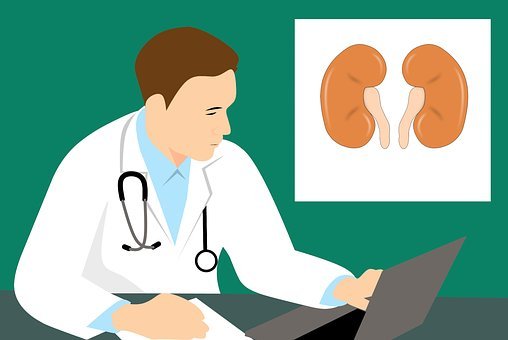Kidney stone describes a painful condition caused by stones formed from crystals in the urinary system. Nearly 3 million Americans were diagnosed with this condition, according to the National Kidney and Urologic Diseases Information Clearinghouse. Along with other factors such as family history, diet -- including consumption of glucose-containing foods and beverages -- can increase your risk of developing this condition.
KIDNEY STONE FORMATION
Increased urinary excretion of calcium, infections and dehydration are a few of the conditions that can cause the formation of kidney stones. You may be able to pass smaller stones with minor discomfort. Other stones may require more intensive treatment such as shock wave treatment to break stones apart or surgery in severe cases.
INSULIN RESISTANCE
One risk factor of developing stones is insulin resistance. When you eat carbs, metabolism releases glucose into your bloodstream. Your pancreas then secretes insulin to restore normal blood sugar levels. An insulin-resistant individual does not respond normally to these effects, causing blood glucose levels to remain elevated. A study by the University of Pisa in Italy, published in the January issue of “Biomedicine & Pharmacotherapy,” found that insulin resistance increased participants' risk of kidney stones formed from calcium.
CARBOHYDRATE INTAKE
Carbohydrates are your body's primary source of glucose, your main source of energy. The type of carbs you eat can affect your risk of kidney stones. A study by the Kaizuka Municipal Hospital in Japan, published in the 2018 issue of “Urologia Internationalis,” found that ingestion of refined carbohydrates like sugar-sweetened soft drinks increased urinary calcium excretion. The change in calcium excretion, in turn, heightened the risk for stone formation.
GUIDELINES
The National Kidney and Urologic Diseases Information Clearinghouse provides clear guidelines for helping you prevent kidney stones. The purpose is to inhibit the formation of crystals that form stones. One of the main ways to prevent this condition is to stay hydrated. The agency also suggests avoiding beverages such as cola, not only because of their glucose content, but also because of an increased risk of developing calcium stones. You should also limit your intake of glucose from refined carbohydrates to control other risk factors such as diabetes and obesity, which can increase the workload on your kidneys. By following a healthy diet, you can help prevent this painful condition.
